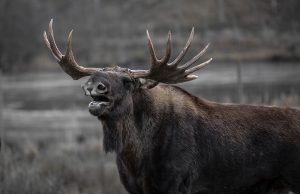
A recording of this talk is available.
The talk will be held virtually via Zoom and in-person at 107 Norman Smith Hall, UMaine, Orono.
- Virtual attendance: Complete the registration form for Zoom connection information
Event Co-sponsors:
- Mitchell Center for Sustainability Solutions
- UMaine Dept. of Civil & Environmental Engineering
- UMaine School of Economics
- UMaine School of Food & Agriculture
- UMaine, Dept. of Wildlife, Fisheries & Conservation Biology
Speakers: Caroline Noblet and Dianne Kopec, University of Maine
In this talk, Noblet and Kopec will explore how rural Maine people, who possess a long heritage of fishing and hunting, are navigating impacts from environmental contamination and climate change. Two surveys conducted in collaboration with Maine’s Department of Inland Fisheries and Wildlife: one with Maine fishing license holders (August 2024, n = 3,549) and another with Maine hunting license holders (March 2025, n = 13,330) allowed our interdisciplinary team to conduct an in-depth exploration of how folks who hunt and fish in Maine are processing information about consumption advisories, and potentially changing their behaviors.
Dr. Caroline L. Noblet is an associate professor in the School of Economics at the University of Maine. She holds a doctorate in economic psychology. Her research lies at the intersection of behavioral and experimental economics, environmental economics, and decision‑making theory. Her current PFAS work focuses on how Maine residents perceive PFAS (“forever chemicals”) contamination—particularly in fish and game—and how messaging can influence environmental and consumption decisions.
Dr. Dianne Kopec is a research fellow at the Mitchell Center. Her research examines how ecology and behavior influence an organism’s exposure to toxic contaminants in aquatic ecosystems.


